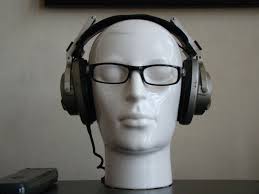Common Assumptions
Establishing value for completion of an objective

It is a common belief that the five senses only have the ability to receive information (and are thus beyond your control). If this were true, why do blind people commonly have a “better” ability to hear or touch than people with sight. The scientific foundation for knowledge allows very little room for increased capability without alteration of the mechanisms that receive information. There is, however, a vast array of abilities uncovered through the combination of; what is blocked out and the depth of detail with which input is processed. That is the infrastructure for heightened sensory ability in the remaining senses among people who have lost one or more of the five senses. There is no reason that this intentional sensory control (filtering and creative translation of how your five senses take in information) can’t create targeted tangible change no matter how well you see, hear, smell, taste, or feel.
Our business goal in this process is to create a chemical surge that is tied to the objective achievement. Just like any other chemical reward system in your body – this feeling is subject to the process of addiction. The more powerfully you experience the chemical validation of the end result, the more your physical body will fight the loss or withdrawal of that stimulation while simultaneously searching for new sources from which to feed.
Use of sensory specific language to experience the evidences of outcome…
There are many who have experienced wild success founded on the ability to ignore feelings through reason. There is no conflict between reason and sensory specific exercises. Reason is one of the most power functions you have, but the ultimate power is in mixing reason with a scientific understanding of how our bodies create natural gravitations to feed our appetites and avoid withdrawals.
Daily Exercises during the completion of an End Result:
- When this outcome is realized, I will see or show…
- When this outcome is realized, I will hear or tell…
- When this outcome is realized, I will feel or touch…
Begin to act out what you will emotionally experience when the objective is achieved.

The deeper you are able to see, hear, taste, touch and smell your “after completion experience”, the greater chance you have to avoid undesired versions of your end result.
Sensory language bit:
If you’re not sure how to do this without someone interrupting, place your phone on your ear, close your eyes, and act like you are on a 3 minute phone call each morning as you engage one of these columns. Exercise the emotion to create an appetite. Make withdrawals painful enough to find a way to get it done.
